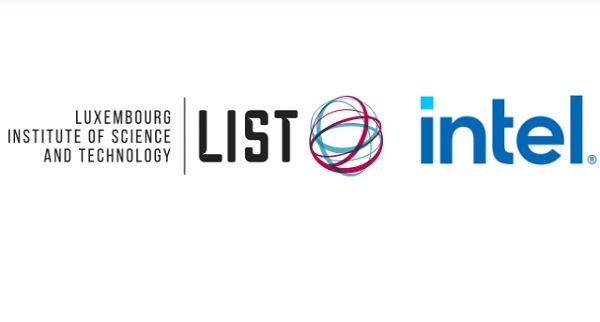
On Wednesday 23 October 2024, the Luxembourg Institute of Science and Technology (LIST) and Intel Corporation announced they have joined forces in a research project centred around ultra-low-power electronics.
The project, co-funded by the Luxembourg National Research Fund (FNR), aims to transform the field of ultra-low-power electronics (or electronics with ultra-low power consumption levels) with the long-term goal of achieving a 90% reduction in power consumption. To achieve this, the "SWITCHON" project will study the use of ferroelectric materials in next-generation electronic devices.
The power consumption of artificial intelligence (AI) applications is projected to reach the total world energy production by 2040. "In response to this pressing issue, SWITCHON will focus on developing sustainable AI and electronics, aligning with the societal priority of reducing energy consumption," explained Prof. Jorge Íñiguez-González, Senior Principal R&T Scientist at LIST and the project leader.
The materials under study belong to a category known as ferroelectrics - a type of compounds that exhibits spontaneous electrical polarisation. They possess a permanent electric dipole that can be reoriented by introducing an external voltage. This property enables the construction of efficient field-effect transistors, which are fundamental to modern electronics. "Our challenge is to understand and optimise this 'voltage control' to improve the materials' performance," Prof. Íñiguez-González added. The project's name, SWITCHON, reflects this focus on understanding voltage control in ferroelectric materials. It serves as an analogy to "switching on" these materials, or manipulating their electric dipoles, by applying a voltage.
"SWITCHON will rely on advanced quantum simulation methods that will allow us to study realistic computer models of ferroelectric nanomaterials, and thus understand - at an atomistic level - the main factors that control (and may allow us to improve) the material's performance in actual electronic devices," the project leader continued. "Quantum simulation methods, as developed and applied by LIST researchers, are a critical tool in modern nanoscience and nanotechnology research, as they offer insights that cannot be achieved experimentally at present."
Intel's involvement in the project stems from its interest in reducing overall energy consumption in electronic devices by 90%. "Intel produces a staggering 10 billion transistors per second. A 90% increase in power efficiency of the transistors' operation could lead to a substantial reduction in global energy consumption," added Prof. Íñiguez-González. "Given this potential for energy savings, the resulting impact could be very significant."
SWITCHON will thus conduct research with a clear technological goal, laying the foundation for future technological breakthroughs, noted the partners. The ultimate objective is to enhance performance and reduce power consumption, aligning with Intel's commitment to sustainability and efficiency.
Led by Prof. Íñiguez-González from LIST and Dr Raseong Kim from Intel, SWITCHON will run for three years. The project is co-funded by Intel, LIST and the FNR through the BRIDGES programme, which supports industry collaborations between public research institutions in Luxembourg and national or international companies.








